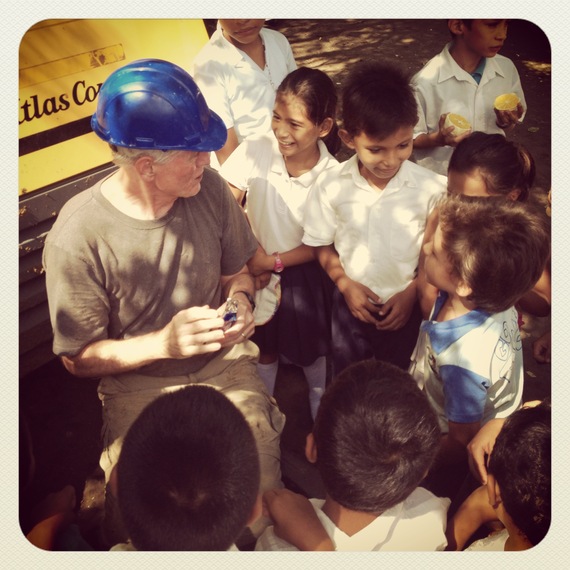An old boss used to say, "You're not going to fix the water crisis drilling one bore hole at a time." I get it -- water security is a complex issue, and scalability is a key measure of long-term success. That said, there's nothing wrong with getting in the game and doing what we can to help alleviate the water crisis one individual, family or village at a time. At the end of the day, the most important measure is alleviating human suffering.
I just returned from a trip to Leon, Nicaragua with Living Water (@LivingWater). In one of the most impoverished countries in the Western Hemisphere, clean water is scarce. Leon's water is provided by the local municipality, but like the electricity, it comes and goes. Now imagine a 1,500-student school on the outskirts of town. Good luck getting clean water out to those children.
For decades, Living Water has been serving communities around the globe via a network of in-country NGOs. Taking on various forms and names to provide clean water, they are now licensed to operate directly in specific countries with their outstanding staff (the 'brains') and a team of volunteers (the 'brawn').
Well-organized, well-run NGOs like Living Water are a marvel to watch, as they've gotten their solutions down to a science. The town in need applies for a well and commits both capital and volunteers; the well gets approved and scheduled; 21 volunteers like my group fly in from around the world, train for a day, and commence work with the staff and townspeople; five days later the well is drilled, cased and flushed, the pump is on and the community is trained; and we're back on the flight home.
Our group of 21, from Strawbridge United Methodist Church was brought in to dig two wells to serve two communities that have lacked reliable clean water for decades. Generations of people have been dealing with the consequences of water insecurity, which severely affects health, education, hygiene, and more. In the course of just a few days, the problem is fixed. It's crazy if you think about it -- decades of misery alleviated with one week of focused, collective effort.

Wearing my "cause marketing" hat, this experience reinforced a key lesson for non-profits who address complex issues -- issues that are distant and lack direct relevance or urgency for Americans saturated with charitable options. The key is to find a way to include people in your work, either directly or virtually (like a viewing gallery in an operating room). Living Water did not need me there to turn a pipe wrench. But they invited me and my team into an immersive experience. Now they have 21 evangelists returning into our individual worlds to share our stories and spread the message and promise of their brand.
People want to roll up their sleeves to help, and they want to tell the story -- just give them the opportunity. In my own experience -- building a house in Paterson, NJ with Habitat for Humanity, distributing mosquito nets in Senegal, Africa, with Malaria No More or digging wells in Nicaragua with Living Water -- it's this personal connection to the work and pride in doing something good that binds me to the cause of the non-profits and enlists me for life as an impassioned advocate. People want to help -- just ask them.